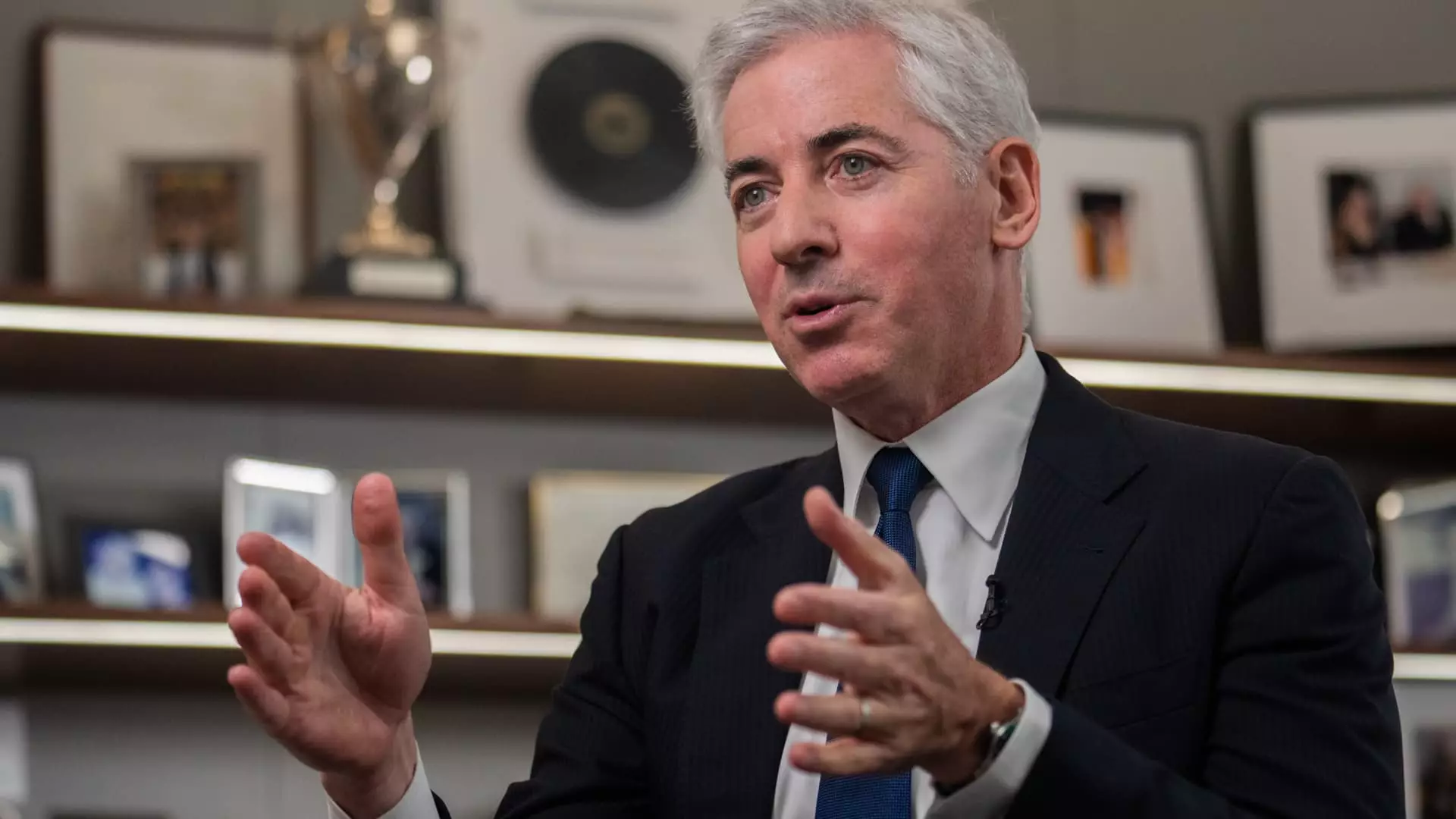Bill Ackman, the renowned billionaire investor and CEO of Pershing Square Capital Management, is making waves in the financial landscape with his increased takeover bid for Howard Hughes Holdings. This strategic initiative aims to reshape Howard Hughes into a powerhouse akin to Berkshire Hathaway, the famed conglomerate led by Warren Buffett. Recently, Ackman’s firm tendered a proposal to acquire 10 million newly issued shares of Howard Hughes at an enticing price of $90 per share, a notable increase from the earlier offer of $85. This maneuver showcases Ackman’s unwavering commitment to realizing his grand vision for the real estate developer based in The Woodlands, Texas.
The relevance of Ackman’s revised offer lies not just in the elevated price but also in the streamlined execution it promises. Unlike the typical merger and acquisition processes that can draw out for weeks, this deal doesn’t necessitate any regulatory approvals, shareholder votes, or significant financing complexities. The straightforward nature of this transaction lends itself to a quick turnaround, potentially enabling Pershing Square to gain a substantial foothold of 48% in Howard Hughes within weeks. This level of ownership would allow Ackman to significantly influence the strategic direction of the company.
In direct response to this financial maneuvering, Howard Hughes’ shares experienced volatility, with a drop of nearly 5% during extended trading hours after the announcement, despite a 6.8% surge leading up to it. This fluctuation introduces an element of unpredictability in the otherwise bullish sentiment surrounding the deal.
Ackman’s Aspirational Blueprint
If this acquisition materializes, Ackman will don the hats of chairman and CEO of Howard Hughes. More than just a title, this position will permit him to implement a vision characterized by aggressive expansion. Under his leadership, he promises to harness the full resources of Pershing Square to establish a diversified holding company, invoking comparisons to Berkshire Hathaway’s expansive empire of controlled companies spanning various industries.
Echoing the footsteps of Warren Buffett, who initially carved his niche as an activist investor before transforming Berkshire into a behemoth with a diverse portfolio, Ackman is poised to replicate this approach. With a specific focus on acquiring controlling interests in companies that meet stringent quality criteria, Ackman is not merely targeting real estate but appears to be looking beyond, suggesting a long-term strategy for sustained growth and profitability.
Despite his ambitious plans, Ackman has emphasized continuity in Howard Hughes’ operations, which will continue to focus on developing and owning master-planned communities such as The Woodlands and Summerlin in Las Vegas. The appeal of such projects lies in their potential for long-term appreciation, especially in dynamic pro-business markets across the United States. In his messaging, Ackman presents a compelling case for why taking ownership of smaller yet growing master-planned communities represents a lucrative investment strategy that could yield considerable returns in the decades to come.
Overall, as Ackman charts a course towards potentially reshaping Howard Hughes Holdings, the investment community watches closely, intrigued by the prospect of what could be built—a modern-day conglomerate that embodies not just real estate prowess but also a diversified investment philosophy reminiscent of one of the greatest investors in history.

